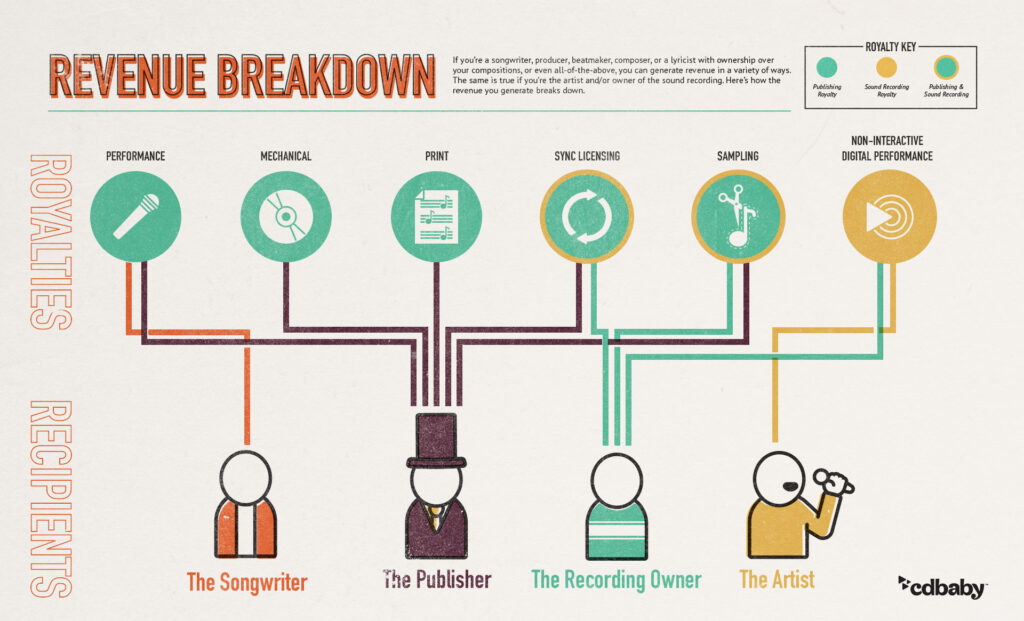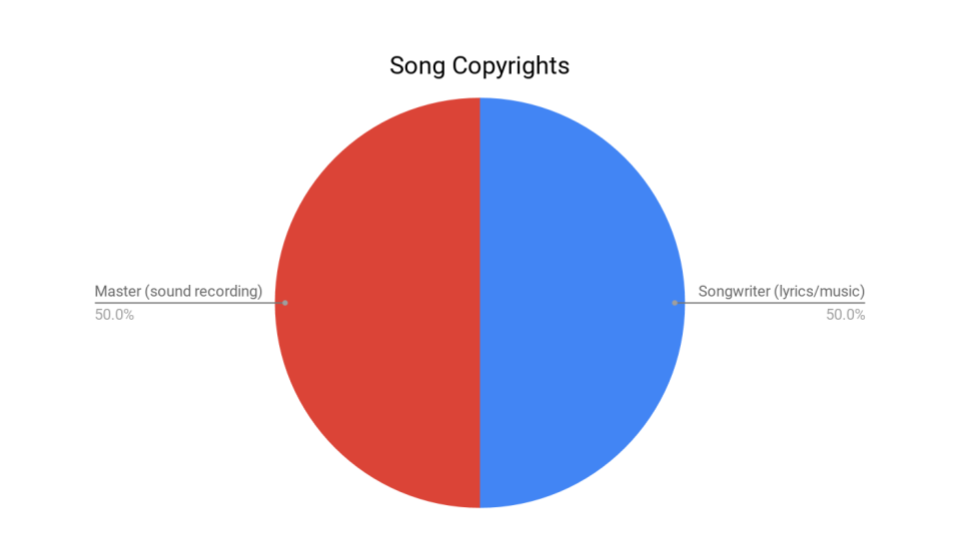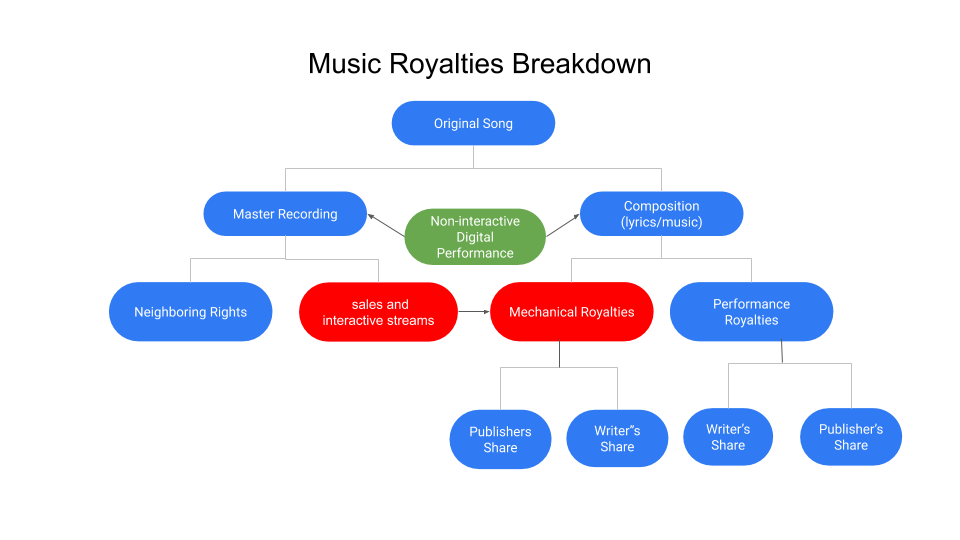Mechanical Royalties
The music industry is a multi billion dollar industry. As an artist or songwriter it is important to understand where the money is and how you can get paid for your music. Far to often I come in contact with artist who have no idea how to actually make money form their music and have not even laid the proper foundation of their business to collect the money even if their song did become a hit.
Aside from the actual sell of music there are multiple sources of royalties artists and songwriters should know about. In this post I will discuss the mechanical royalty.

A song can be thought of as being split into two halves: the master (the sound recording itself) and the composition (the underlying music— lyrics and notes). Different kinds of music publishing royalties are collected on both the master recording and the composition sides of the song.

Mechanical Royalties
Mechanical Royalties are per-unit payments owed to the songwriter from the physical or digital reproduction and distribution of the copyrighted (master) recording. Each time a sound recording is purchased or streamed, publishers receive a mechanical royalty payment, which is then passed on to the songwriter.
Historically, that meant the manufacture of physical media such as vinyl, CD, cassette, but now also includes digital downloads, and interactive streaming services where the user CHOOSES to play a specific song on-demand, creating a reproduction of the copyrighted composition. Today with the decline of song and album sales, streams comprise the bulk of mechanical royalties.

Who Pays Mechanical Royalties?
Whoever owns or controls the master recording is responsible for paying mechanical royalties to the publisher who represents the songwriter, traditionally this was the record labels. Independent artists who own their masters are responsible for paying these royalties.
Compulsory Mechanical License
Under current law, the song (Master) and its distribution to the public is only considered authorized and legal if the copyright owner of the underlying material (Lyrics/Music) has given his consent to such transmissions. The record label or master recording controller (or download provider) must first obtain a mechanical license from the publisher or copyright owner before transmitting or distributing the song; failure to do so can result in penalties of up to $150,000 per work.
A compulsory mechanical license, and the computation of royalties derived from the license, are based upon a “statutory rate” set by law, which is periodically increased to reflect changes in the economy. The current U.S. statutory rate is 9.1 cents for recordings less than five minutes long and 1.75 cents per minute for songs longer than five minutes per record manufactured.
While that figure may sound small, it can quickly add up to a significant amount should the recording in question be a hit and/or if the copyright owner has several tracks on a hit album.
For example, if a hit single sells 1 million copies x 9.1 cent = $91,000 owed in mechanical royalties to the songwriters (lyrics/music). If it’s a platinum album multiply $91,000 x 12 songs = $1,092,000.
Who Collects Mechanical Royalties
In the case of interactive streaming, streaming platforms pay mechanical royalties to the publisher through the local PRO. On-demand downloads and physical sales, on the other hand, are paid by the master’s owner (label) to the publishers.
While mechanicals are often paid directly to the publisher, they are sometimes paid through collection services of a mechanical rights agency, such as the Harry Fox Agency (HFA). With HFA, the publisher is charged a commission of approximately 4.5% of the gross mechanical royalties collected. In either case, the collected royalties are then split between the publisher and the songwriter copyright owner, following their own songwriting agreement.
It should be noted that, in nearly every country outside the U.S., the music publisher does not have the ability to collect mechanical royalties directly from the labels. Instead, labels are often required to pay royalties to a collection rights society, to which the publisher must belong in order to receive those royalties. Sub-publishers are frequently involved, working on behalf of the original publisher by joining the society in question, directly registering the song, and collecting the royalties before disbursing the monies to the original publisher. As a result, payments to the songwriters can take up to a year or more. This is where organizations like Songtrust can assist with registering and collecting these overseas royalties.